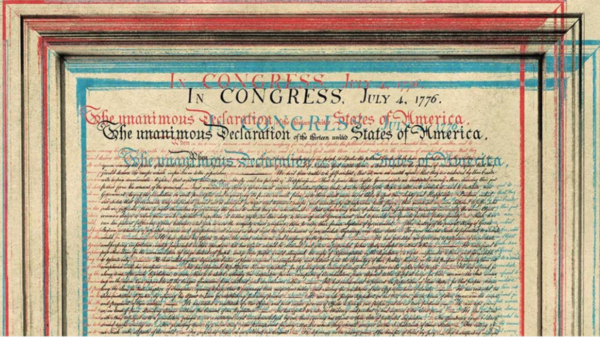By Peniel E. Joseph
CNN — For nearly a decade, I have been honored to be a faculty member at the University of Texas at Austin. As a scholar whose research and teaching hinge on histories of racism and activism, this April was an exceptionally harsh one for me —and for all of Long-horn Nation. A month that began with the gutting of resources devoted to our students has ended with shocking scenes of crackdowns by law enforcement in our midst. I have been left heartbroken. This spring, our motto, “What Starts Here Changes the World,” has taken on a bitterly ironic meaning.
On April 2, the university’s president, Jay Hartzell, delivered a devastating blow via email, announcing the firings and demotions of nearly 60 individuals, all victims of the university’s newly enforced compliance in the wake of Senate Bill 17, which prohibited DEI (Diversity, Equity and Inclusion) initiatives in all parts of campus except research and teaching.
Hartzell, in a letter, said, “associate deans who were formally focused on DEI will return to their full-time teaching positions,” while the “positions that provided support for those associate and assistant deans and a small number of staff roles across campus that were formerly focused on DEI will no longer be funded.” These people are not just numbers. They were members of our community. The shortsightedness of this decision led over 500 professors, including me, to sign a letter of no confidence with respect to the president.
What made the firings especially hurtful is this university’s long history of racial exclusion, sexism, homophobia, transphobia and discrimination against students of color. The “40 Acres,” which constitutes the original size of land set aside for the university, is also shorthand for the pride that Longhorn Nation takes in the campus as both a real and imagined community. A significant part of that community’s history includes racial discrimination that required the courageous activism and organizing of students and community members to break down ancient barriers. The social integration of Black people and people of color at the university has been paralleled by the growth of Black, Women and Gender and Mexican-American Studies as globally recognized academic disciplines and departments.
To see these programs arise and grow, and to know that this flagship university has acknowledged marginalized communities only to then shut down programs that offer them a critical lifeline during their time here is profoundly disturbing to witness.
Countless numbers of students have expressed to me their fear, anxiety, disappointment and depression. My colleagues and I have commiserated about the devolution of racial justice in Texas and nationally over the past four years. And an even larger number of “allies” have disappeared from view, which, although expected in many ways, is disappointing.
What makes the present so dispiriting is the reckless manner in which the goodwill of the recent past has been squandered.
George Floyd’s murder on May 25, 2020, sparked a nationwide movement that forced institutional reckoning with America’s long history of racial subjugation.
I watched this history unfold while simultaneously participating in it, writing for CNN, conducting numerous interviews and delivering keynote speeches that doubled as sermons, evangelizing my hopes for building a Beloved Community out of the ashes of our centuries-long agony of racial discontent, political division and police violence.
For a time, it appeared that things were, in fact, changing, with corporate America embracing the Black Lives Matter movement and the cause of racial justice in ways that enhanced opportunities, recognition and dignity for employees of color.
Meanwhile, universities expanded their DEI programs to create a welcoming environment for historically marginalized and underrepresented students but also to correct moral failings that included histories of racial segregation.
On this score, the University of Texas at Austin — still affectionately referred to as the “40 Acres” — has considerable work to do. Founded in 1883 as a racially segregated university of “the first class,” the university did not open its doors to a single Black student until 1950, when Heman Sweatt (the Sweatt Center for Black Males was forced to drop any mention of race as part of the SB 17 compliance) began but did not finish law school.
When racial integration arrived in the 1950s on the heels of the Brown v. Board of Education Supreme Court decision, the earliest Black Longhorns — known as the “precursors” — found an inhospitable racial climate where they were not allowed to live on campus dorms joining fraternities and sororities and faced general disrespect.
Flash forward to 2024. At the very moment the university announced the creation of a new School of Civic Education to bolster viewpoint diversity that favors conservatives, it fired dozens of staff connected to DEI, the favorite target of the far-right.
As a vocal scholar-activist whose work continues to revolve around histories of race, democracy, and power in the United States and globally, I have watched, with growing alarm and sadness, the impact anti-DEI legislation has had on my students, colleagues and staff. The waves of political backlash unfolding around the nation also extend beyond DEI and indeed, beyond the walls of the university to include protests against the horrors in Gaza. This moment has turned universities such as Columbia in New York and Emory in Atlanta — among many others — into roiling battlegrounds that echo the clashes between anti-war and Black Power advocates and law enforcement on college campuses in the 1960s and 1970s.

You must be logged in to post a comment Login